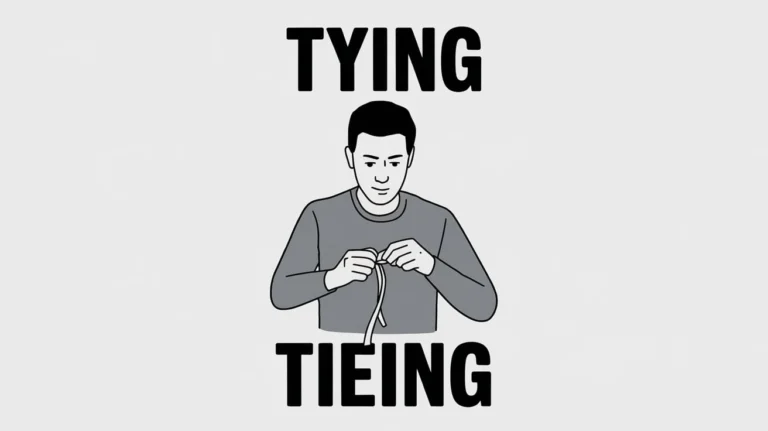Lier or Liar: What’s the Difference? Meaning & Correct Spelling
Lier and liar are two commonly confused words in English, each with a unique meaning and usage. Lier refers to someone lying in a horizontal position or lying prostrate, while liar is someone who tells lies or is habitually dishonest. Remembering this distinction can improve English language usage and help avoid spelling mistakes. For instance, use “lier” when describing someone lying down and “liar” for someone who distorts the truth. This difference in language usage may seem subtle, but using each word correctly is essential for clear and honest communication. Knowing these meanings can help protect yourself from a liar and enhance your language usage guide.
What is the Meaning of ‘Lier’?
The term “lier” is rarely seen in modern English. Lier is an agent noun meaning “someone or something lying in a horizontal position.” It originates from the verb “lie,” which means to “recline” or “rest.” This form is primarily used to describe someone or something lying prostrate on a surface. For example, “A lier could be a person resting on the ground or a lier waiting to ambush prey in a reclined position.” This word is mostly obsolete and is considered a rare word in English.
To help clarify, here are a few sentence examples for “lier”:
| Example Sentences of “Lier” |
|---|
| “The cheetah acted as a lier in the tall grass, waiting to pounce.” |
| “As a lier on the beach, she soaked up the sun all afternoon.” |
| “The soldier, like a skilled lier, hid until the enemy passed.” |
In these sentences, the meaning of “lier” relates specifically to someone in a horizontal or reclined position rather than someone who tells lies. This difference highlights why the word “lier” is hardly ever used, as it has a narrow, outdated meaning that rarely applies in modern English.
Read More About : High Quality or High-Quality:Guide which one is correct
What is the Meaning of ‘Liar’?
On the other hand, “liar” is a common term in English and is frequently used in both written and spoken contexts. A liar is a person who tells lies or is habitually dishonest. This word, like “lier,” also comes from the verb “lie,” but it refers to untruthful behavior. A liar is someone who speaks dishonestly or engages in deceitful practices. Unlike “lier,” which describes a physical position, “liar” describes a person’s character or actions.
Here are some examples of “liar” in sentences:
| Example Sentences of “Liar” |
|---|
| “He was known as a liar for his constant deceit.” |
| “No one trusted her after she was caught as a liar in the house meeting.” |
| “I don’t want to be seen as a liar, so I always speak the truth.” |
These examples help clarify the term’s meaning: a liar is someone who lies, acts dishonestly, and distorts truth. Since lying can harm trust and honest communication, being called a liar is generally considered an insult.
Lier vs. Liar: Key Differences
When we compare lier vs liar, we find a stark difference in meaning and usage. While both words originate from the verb “to lie,” they diverge significantly in their definitions. A lier refers to someone lying down or in a horizontal position, while a liar describes someone who is deceitful or dishonest. This difference in language usage is essential to remember as both words are spelled similarly, causing frequent misspelling and misinterpretation.
These key differences can be summarized in the table below:
| Word | Meaning | Example |
|---|---|---|
| Lier | Someone lying in a horizontal or reclined position | “The lier stayed hidden in the grass.” |
| Liar | A person who is deceitful or untruthful | “No one trusts a known liar.” |
Understanding these terms helps prevent spelling mistakes and language confusion in both spoken and written English language usage.
Usage Guide: When to Use ‘Lier’ and ‘Liar’
Knowing when to use lier versus liar can be simple with a few tips. Use “lier” when referring to someone lying prostrate or in a reclined position. It is rare, but if you’re describing someone waiting quietly, like a predator in horizontal position, this is correct. Use “liar” whenever discussing dishonesty or deception. This word is appropriate in any context where someone is habitually dishonest or deceitful.
Grammar and spelling tips can help. To avoid confusion, remember these tips:
- Associate “liar” with dishonesty or telling lies.
- Think of “lier” as a person lying down, often in a horizontal or reclined position.
- Use Grammarly or other proofreading tools to spot these terms in writing and ensure you’re communicating confidently and accurately.
Additional Tools for Improving Your Writing
To help you avoid writing mistakes and improve English language usage, consider these helpful tools:
| Tool | Purpose |
|---|---|
| Paraphraser | Helps reword sentences for clarity and variation. |
| Grammar Checker | Flags spelling mistakes and offers grammar and spelling tips. |
| Plagiarism Checker | Ensures originality by comparing your text with existing sources. |
| Citation Generator | Creates proper references for research, improving academic writing. |
Using tools like these not only enhances your language usage guide but also makes your writing more polished and professional.
conclusion
Understanding the difference between lier and liar helps clarify their distinct meanings and avoids commonly confused words. Lier describes someone in a horizontal position, while liar refers to a person who tells lies or is habitually dishonest. Recognizing these unique definitions improves language usage and prevents spelling mistakes. Remember, mastering such distinctions not only enhances English language usage but also builds honest communication skills. Whether in writing or conversation, using these terms accurately shows attention to detail and a command of language usage guide principles.
Frequently Asked Questions (FAQs)
Is “Liar” the Correct Spelling?
Yes, “liar” is the correct spelling when referring to someone who is dishonest. It’s a commonly used term in English language usage.
Are “Liar” and “Lier” Related?
Both terms share origins in the verb “to lie” but diverge in meaning. A liar is someone who lies (speaks falsely), while a lier is someone lying down in a horizontal position.
What’s an Example of Each in a Sentence?
“While the cheetah acted as a quiet lier, hidden in the tall grass, the boy became known as a liar for telling falsehoods.”
In short, the difference between “lier” and “liar” lies in their meanings and contexts. Use “lier” for a horizontal position and “liar” for untruthful behavior.







